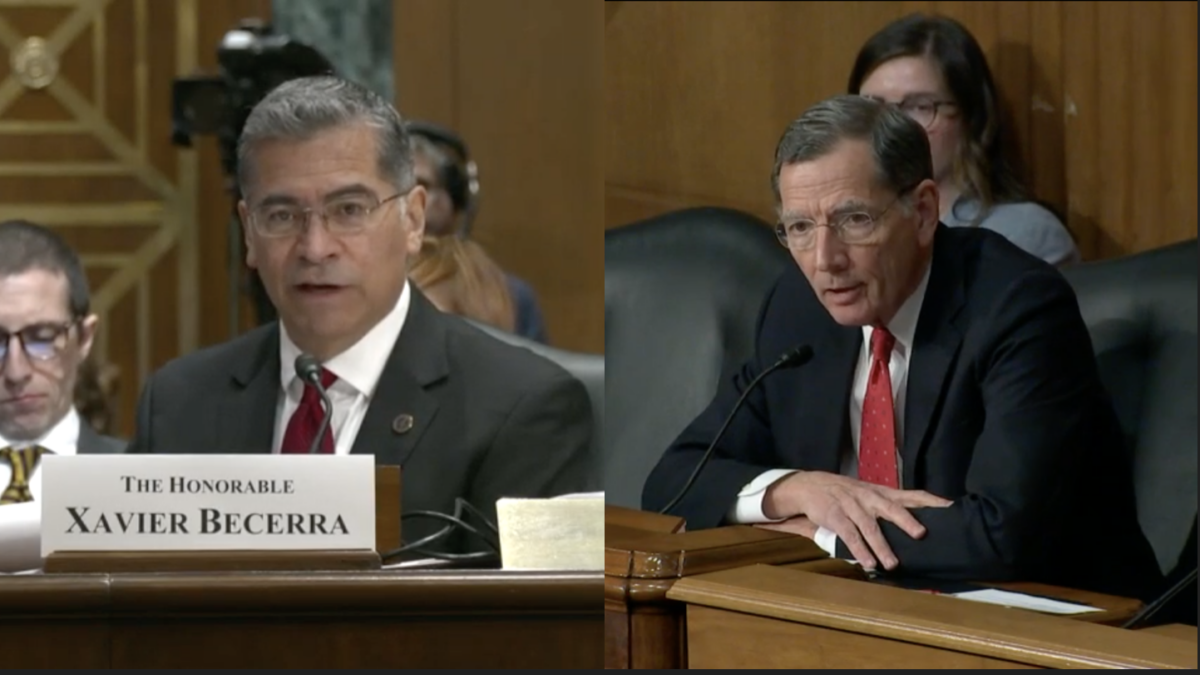
If a discharge petition picking up speed succeeds in the House of Representatives, four immigration bills will be brought to the floor for at once. That will be quite a debate, and the bill with the most votes will win. One of those bills is the enticingly bipartisan Uniting and Securing America (USA) Act of 2018, which addresses what to do with DACA recipients — the millions of illegal immigrants given temporary legal status under President Obama.
The bill is sponsored by Republicans and supported by a whole lot of Democrats, which sounds like a good thing, but it’s not. Bipartisan only works when the underlying bill is solid, and this one isn’t.
Here are four things you need to know about the bill.
1. Aliens Who Entered the U.S. Illegally One Day Before Their 18th Birthday Are Eligible
The first 18 years of a person’s life are formative – he or she learns language, cultural norms, and values. That’s why upwards of 80 percent of Americans think children brought here illegally by their parents should legally be allowed to stay. We’re all they’ve known.
Well, the USA 2018 Act turns that kind of thinking on its head.
Under this bill, a “child” who is minutes away from her 18th birthday can be brought illegally into this country by her parents and qualify for conditional permanent resident status. Even if she spoke no English and knew nothing of our culture upon entry, she can ride the same path to citizenship as someone who was brought here as an infant and knows nothing else.
Aliens can enter as late as age 17 and are required to have been in the U.S. continuously since only December 31, 2013. The potentially eligible population could be as many as 3.2 million.
2. Convicted Felons Are Not Excluded
At first blush, the requirements for receiving conditional permanent resident status in the bill look solid, especially the part about no convictions for certain serious offenses. For example, domestic violence is an offense that disqualifies an individual from receiving conditional permanent resident status.
But there’s an exception. Aliens who can prove their violent crime is “related” to a crime someone else perpetrated on them are exempted from the requirement:
”… the alien provides evidence that the alien’s crime of domestic violence is related to her or his having been a victim herself or himself of domestic violence, sexual assault, stalking, child abuse or neglect, elder abuse or neglect, human trafficking, having been battered or subjected to extreme cruelty, having been a victim of criminal activity described in section 101(a)(15)(U)(iii) of the Immigration and Nationality Act.”
I’m pretty sure that most perpetrators of domestic violence can find a “reason” in the above list. There are differences in how each state defines and handles felonies, but in the state where I live (Utah), domestic violence in the presence of a child is considered a violent felony. An alien in the state of Utah who has been convicted of this violent felony can produce evidence that he was in foster care due to child abuse or neglect and — poof — his conviction is null and void for the purposes of conditional permanent resident status.
Aliens who caught felonies as juveniles, and who have had those felonies expunged, are also allowed conditional permanent resident status. It’s fairly straightforward to have a juvenile record expunged, at least in the state of Utah. Utah prohibits expungement only for murder or aggravated murder. A 16 or 17-year-old who has been convicted of rape, assault, arson, manslaughter, or child molestation can turn 18, have his record expunged, and — poof — his conviction is null and void for the purposes of conditional permanent resident status.
3. You Can Drive A Truck Through The Hardship Exceptions
Qualifying aliens are granted renewable eight-year periods of conditional permanent resident status. Once they meet certain education, employment, or military requirements, the conditional status is removed, and they are lawful permanent residents on a five-year path to citizenship.
The time spent in conditional status counts toward the five years to citizenship. If they happen to have met the requirements before applying for benefits, they go straight to lawful permanent resident status. Or, they can get a hardship exception and skip the requirements altogether.
To qualify for a hardship exception, an alien must demonstrate that he or she is a full-time caregiver of a minor child, or that his or her removal would constitute an extreme hardship for a spouse, parent or child with legal status.
It’s laughably easy for someone to demonstrate hardship circumstances. Let’s take a hypothetical 23-year-old woman who entered illegally the day before her 18th birthday on December 31, 2013. Since then she has become a single mother to two children. To receive a hardship exception, all she needs are sworn affidavits from two people unrelated to her who have direct knowledge of the circumstances that warrant the exception. The two people need to provide only a statement, their name and address, and the nature and duration of their relationship with her.
If she can get two friends or two neighbors to swear her kids would fall apart without her, she’s good to go.
4. A Majority of Americans Don’t Want The Bill
CNN touts a poll from February that found 83 percent of Americans want immigrants brought here illegally as children to be able to stay in the country. That is an accurate representation of their poll, but it is not an accurate representation of what Americans want.
The CNN poll asked respondents:
“As you may know, a U.S. government program allows some immigrants who were brought to the U.S. illegally as children to remain in the U.S. without risk of deportation. To qualify, immigrants had to be under the age of 30 as of 2012, have no criminal record, and be a student, in the military or have earned a high school diploma. Do you think the U.S. should: A) continue this policy and allow immigrants who meet these qualifications to remain in the U.S. or B) end this policy and allow immigrants to be deported even if they do meet these qualifications?”
Eighty-three percent of respondents said they wanted the program to continue, but there were no other questions asked. If you look at the much more comprehensive Harvard-Harris poll from January, you see that there are conditions under which Americans want these immigrants to remain in the U.S.
Like the CNN poll, the Harvard-Harris poll shows that the great majority of Americans want immigrants brought here illegally as children to receive work permits (78 percent) and a path to citizenship (77 percent). What the Harvard-Harris poll also shows is that the majority of Americans want some other things to go along with that: an end to chain migration (79 percent), secure borders (79 percent), a wall (54 percent), and an end to the visa lottery (68 percent).
In a more recent Berkeley poll, 59 percent of Californians — yes, even Californians — believe it is somewhat or very important to increase deportations, and a whopping 88 percent said an immigrant’s ability to speak English is important.
Nothing in the USA 2018 Act addresses English, chain migration, a wall, or the visa lottery program. Its feeble section on border security is limited primarily to deploying updated technology along the border; increasing flight hours by Air Border Patrol; and expanding and modernizing high-volume border ports of entry.
The USA 2018 Act is enticingly bipartisan but dangerously out of step with what Americans really want. Don’t be fooled that it’s a compromise worth making.









